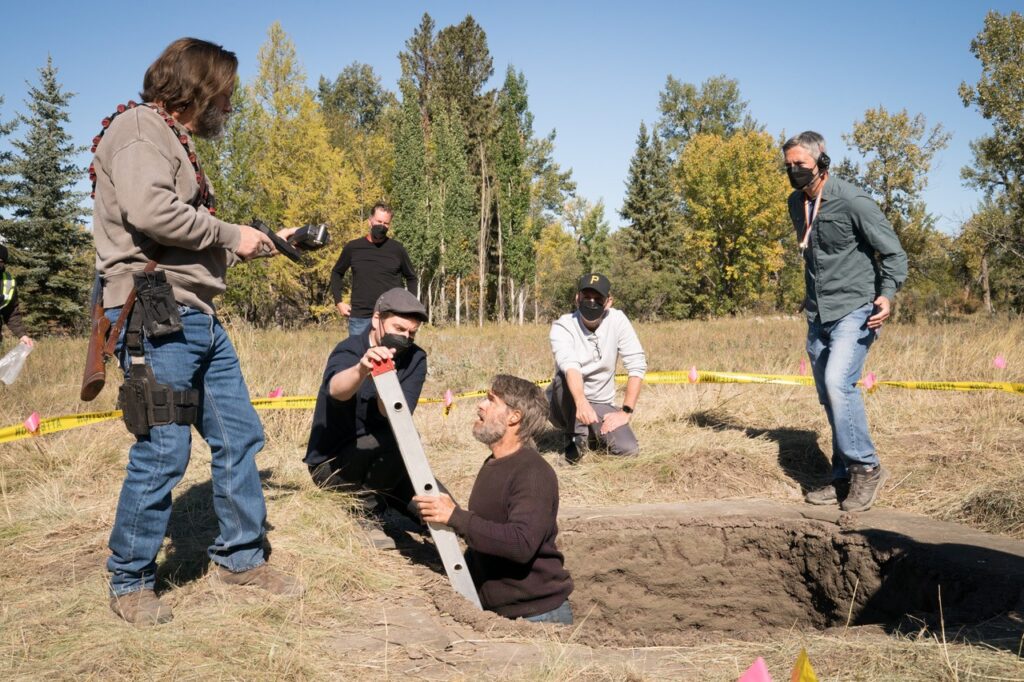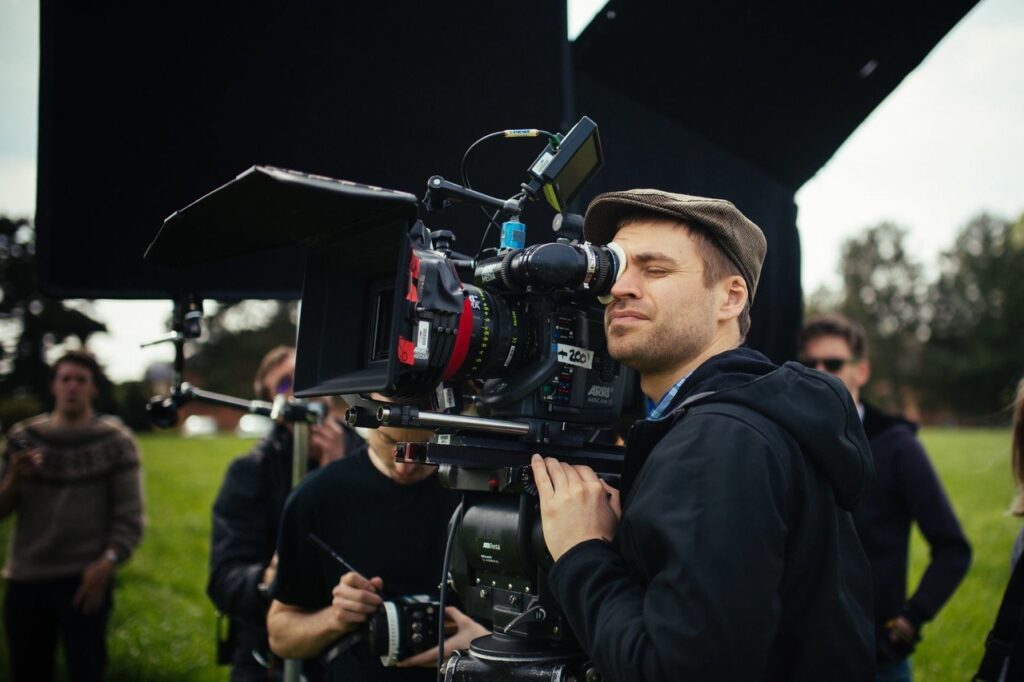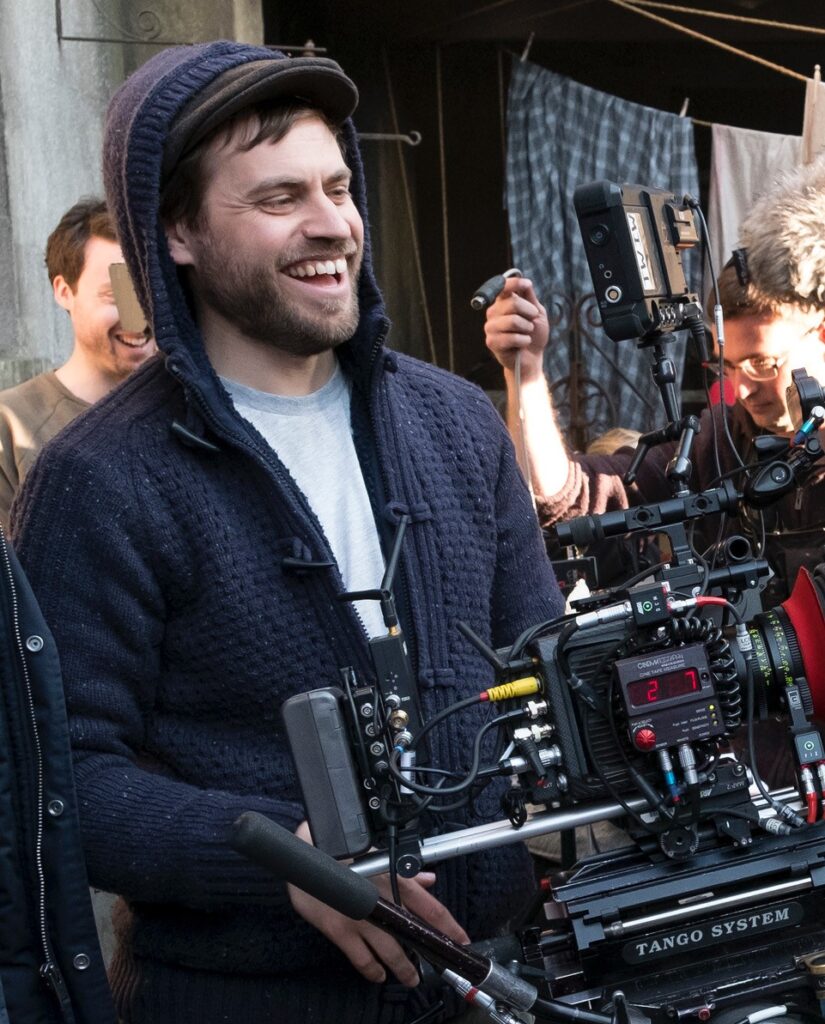In conversation with Eben Bolter, Cinematographer on the worldwide hit series The Last of Us
All of the masterclasses that our fantastic Industry Teams organise are worthy of recapping, but this week at Screen and Film School Brighton there was a particular buzz around the place as students and staff alike prepared to welcome Eben Bolter, the cinematographer behind the most talked about TV show in the world right now: The Last of Us.
Eben’s professional career spans well over a decade, and a brief look at his credits shows a long history of roles behind the camera on big screen productions (Night Teeth, 2021) as well as work on TV series such as Armando Iannucci’s sci-fi hit Avenue 5. But without doubt the hot topic of the day was The Last of Us, and Eben was incredibly generous and insightful when discussing this headline-grabbing show.
He also gave our Zoom audience of well over one hundred students invaluable advice about getting a foot in the door in the screen and film industry, details of which are featured below. And don’t worry, this recap doesn’t include any spoilers or indeed any mushrooms puns, as tempting as they are.
Eben started off by talking about his early days breaking into the industry, which is always fascinating for our budding filmmakers to hear.
“Jurassic Park was the film that started it all for me. From there, I realised that Spielberg was the person who’d also directed E.T, which was another film I’d loved. I became a cinematographer almost by accident, really. I always thought I’d end up in sales or distribution. I shot corporate videos to begin with, which was around eleven or twelve years ago.
Then I shot fifty short films in one year. That was the year I decided that I was going to go all-in and become a full-time cinematographer. Every single job was a learning experience. Even if it’s terrible, you can still take something away from it. All that hard work I put into that year is what led to me doing my first feature film. It’s important not to be too precious about your slate. Cinematographers don’t have to live and die by the project to the same extent as a director does.”
Given the reception for The Last of Us, it was understandable that many of the student questions that flooded in for Eben related to the show. Eben answered brilliantly, and shared information about his personal reference points, the tech that was used, and the lessons he took from being on set.
“Craig Mazin – Chernobyl, was a touchstone for me. I took the same principals into my approach for The Last of Us. I also really loved Children of Men too and tried to mirror this creatively.
I think what’s happening is that large format and nice lenses are very fashionable at the moment. But the story of The Last of Us is of a world that’s essentially frozen in 2003. So, it felt appropriate to not overdo it on our kit and keep things relatively lo-fi.
We took risks. We just had the ability to go big when we needed to. But my main take-away was less is more. And I think the reception of the show has clarified for me that it was the correct approach.
Another lesson I took from filming this show was to recognise that your job as a cinematographer is 50% art and 50% business. The film industry is a machine, and you are a part of it.”
Staying on the subject of Eben’s most recent work, he discussed the chain of command on Craig Mazin’s hit show, and then was bold enough to name his favourite episode.
“For The Last of Us, our Production Designer was the master of preparation. But I must be involved in their process in order to check that their plans are going to work for the cinematography. For example, if they construct a scene in a room, I need to know whether there needs to be a hole in a wall for the camera to capture a specific shot.
Emotionally, episode three is my favourite. Technically, it’s episode five. Episode three is just about as perfect a script as I could’ve hoped for, to be honest.”
Moving away from the world of mushrooms and the apocalypse, the masterclass with Eben broadened out into a more general discussion. Firstly, on the topic of budgets.
“Look for the advantages of the situation you’re in. The bigger the budget, the less creative risks you can take. The idea of a low budget movie, where no-one is looking over my shoulder, there’s an amazing creative freedom that comes with that.
I also love to feel nervous and out of my comfort zone. I consume a lot of visual reference material, mainly to find out what I don’t want the project to be. For example, if I’m going to shoot a space sci-fi, I’ll watch Alien or Passengers, which is like a glossier Hollywood version of that story scenario. And I’ll work out what to do. Then I’ll put those ideas to the director, to see if we’re on the same page creatively.”
There was no better place to finish this masterclass than for Eben to share what advice he would offer his younger self and then to tease what project he might be moving on to next.
“As a young filmmaker, remember that you are part of a team. The most important thing is the story. Put the story first. Know when to do more as a cinematographer and when to do less. Everyone’s got their own journey and you’ve basically just got to be true to yourself.
“The problems with having a hit like The Last of Us is, what do you do next? How can I move on from this? All I know is that I definitely want to do something different. I’ve been offered a bunch of scripts which could basically turn out to be similar projects. I’m just trying not to repeat myself.
Studios have lists, budget plans, etc. And I want to be a suggested cinematographer on one of those lists. I’m willing to use projects as steppingstones to get to work on a project that I really like.”
Thanks to Eben for taking time to share so many wise words with us. The Last of Us is proving to be hugely popular with audiences around the world and it was an honour for us to chat with a vital element of that success story. Be sure to tune in to the next episode as soon as it arrives on our screens this weekend. Thanks also to our Industry Team in Brighton for securing this memorable masterclass.
Are you interested in being a part of the new legacy at Screen and Film School Brighton?
Sign up to one of our Open Days:
Find out more information on our courses by clicking below:





